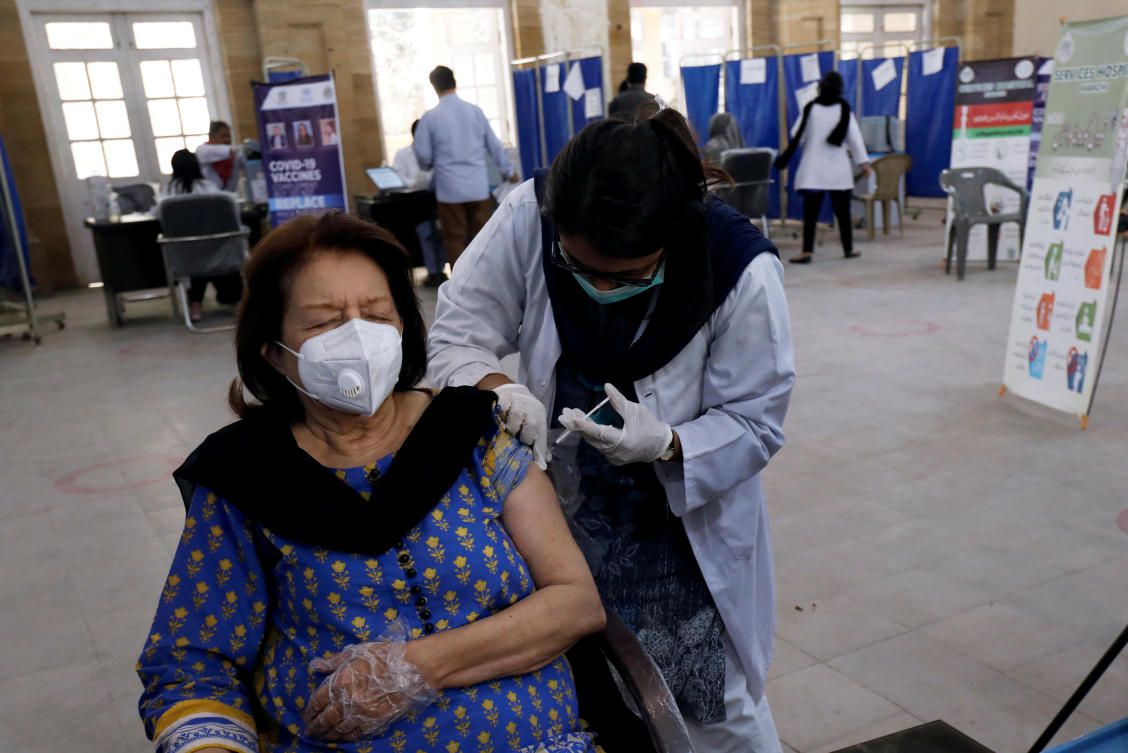The importance of vaccinating developing countries, explained

A few minutes every morning is all you need.
Stay up to date on the world's Headlines and Human Stories. It's fun, it's factual, it's fluff-free.
The world’s poorest nations have not even begun to vaccinate their populations and countries south of the United States border have largely been unsuccessful in vaccinating theirs as well. All this while newer, more dangerous variants of the virus continue to circulate.
As of last month, 30% of Americans have received at least one dose of the coronavirus vaccine, with nearly 17% fully vaccinated. With coronavirus rates and deaths having mostly declined in the country since February, many believe we are headed toward the end of this pandemic.
But the global numbers tell a different story.
The world’s poorest nations have not even begun to vaccinate their populations and countries south of the United States border have largely been unsuccessful in vaccinating theirs as well. Only Chile, which boasts a 44% vaccination rate, has led a successful campaign. Most other South and Central American nations have seen less than 10% of their populations vaccinated, including Brazil, which has a vaccination rate of only 6%.
All this while newer, more dangerous variants of the virus continue to circulate.
A race between vaccines and variants
As the vaccine first began to be distributed in many countries, new, more contagious variants of the coronavirus started to spread. The B117 variant, which is thought to be more transmissible and deadly, made its way from the United Kingdom and is now spreading quickly throughout the US.
Pfizer Inc. and Moderna, Inc. have seen enough trial data to believe their vaccines are effective against this strain.
Other variants, like B1351 out of South Africa and P1 out of Brazil, have scientists worried that the efficacy of their vaccines are not sufficient to block these strains. B1351 has already blunted the efficacy of the Johnson & Johnson vaccine and there are concerns that more variants can form, especially from countries that have not yet been able to obtain the vaccines they need.
“It is a race between vaccines and variants,” Leann Poston, a former pediatric doctor, told TMS. “It is vitally important to get vaccines to developing countries. It is humanistic and altruistic. There is also a very selfish reason rich countries should want to achieve global access to vaccination. In any country where there are large numbers of infections, there is an increased risk for SARS-CoV-2 to mutate and develop another ‘variant of concern.’”
“Diseases don’t know borders,” Anna Hamilton, M.P.H., Louisiana Public Health Evaluator, added in comments to TMS. “The only way we can stop another variant from coming to the US is if we control the virus’ spread globally.”
Economic impact
The main issue with the distribution of vaccines is that vaccine doses are a commodity and wealthy countries have the vaccine monopoly. Duke University Global Health Institute has found that, as of mid-January, 4.2 billion out of 7 billion doses have gone to high-income countries.
The lack of access to vaccines not only threatens the rest of the world because of the occurrence of new variants, it also vastly hurts the economy.
The National Bureau of Economic Research released a study in January that estimated that the world economy would lose between US$1.8 trillion and US$3.8 trillion by the end of 2021. This scenario’s predictions are based on developing countries vaccinating half of their populations by the end of the year. It also states that more than 50% of the economic pain will be suffered by wealthy countries.
As developing countries fight the pandemic, more shutdowns may occur. The less money these countries have to spend and the fewer jobs their citizens have, the fewer imports will reach the US, Europe and East Asia. Parts, components and commodities will be harder to come by.
There have been several different ideas to address this problem. The World Health Organization and two nonprofits run by Bill Gates launched a program dedicated to providing one billion doses to 92 poor countries and a billion more to dozens of middle- and high-income nations.
Additionally, the US government has launched Covax, which backed companies in their development and manufacturing of the vaccines. In return, these companies would provide Covax hundreds of millions of doses.
The Biden administration also sent 2.5 million doses of the AstraZeneca vaccine to Mexico and Canada in mid-March. Despite the help, Mexico has less than 1% of their population totally vaccinated, a worrying statistic for a country that borders the US.
These initiatives have struggled to raise enough money for their targets to be feasible. Even if they did, a billion doses would reach less than 20% of each poor country’s population.
Have a tip or story? Get in touch with our reporters at tips@themilsource.com




Comments ()